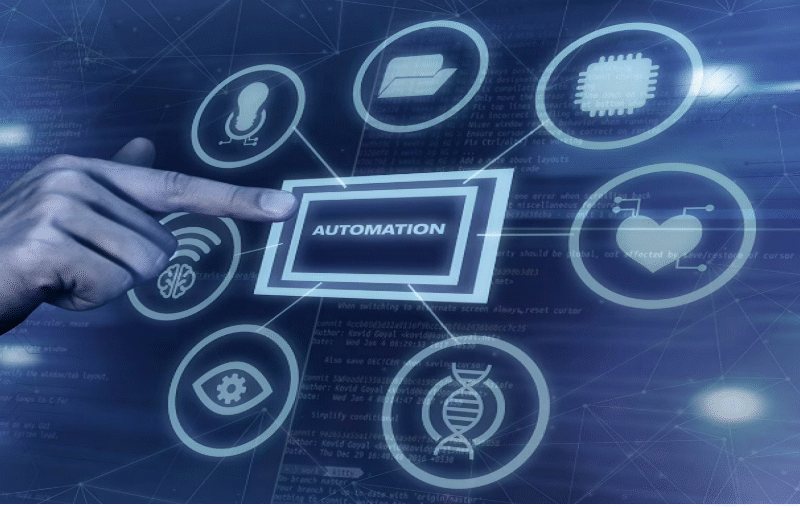As we look toward 2025, the landscape of support systems is poised for transformative change, driven by advancements in AI and machine learning. Traditional support, often characterized by human interactions and scripted responses, is increasingly being augmented or even replaced by sophisticated AI knowledge bases.
These systems not only provide instant answers but also learn and adapt from user interactions, creating a more personalized experience. Imagine a future where customer queries are resolved in real time, with AI systems anticipating needs based on historical data and behavioral patterns, effectively reducing wait times and enhancing satisfaction.
Instead, it highlights a crucial shift toward a hybrid model, where humans and AI collaborate. In this scenario, AI handles routine inquiries while human experts focus on complex issues requiring empathy and nuanced understanding. This synergy could redefine the role of customer support representatives, transforming them into strategic problem solvers rather than mere answer providers.
By 2025, organizations that successfully integrate these technologies will likely see not just improved efficiency but also deeper customer loyalty, as clients feel valued and understood through tailored interactions.
Defining AI Knowledge Bases in 2025
In 2025, AI knowledge bases have evolved into dynamic ecosystems that transcend mere repositories of information. They now leverage advanced natural language processing and machine learning algorithms to provide contextually relevant insights, making them not only reactive but also proactively predictive. Imagine a knowledge base that learns from user interactions in real-time, adapting its responses based on individual preferences and historical data, thus transforming the customer support experience into a highly personalized journey.
In this environment, customers can seamlessly switch between typing a query, speaking it aloud, or even uploading an image for troubleshooting, ensuring that their experience is fluid and intuitive. The result is a level of accessibility and efficiency that traditional support systems struggle to match, leading to faster resolution times and heightened customer satisfaction. As we approach 2025, organizations that harness these advanced AI capabilities will likely find themselves at a significant competitive advantage in delivering superior support services.
Overview of Traditional Support Mechanisms
Traditional support mechanisms have long been the backbone of customer service, relying on human expertise to address inquiries and resolve issues. These systems often involve a tiered approach, where customers first engage with basic support channels like FAQs or chatbots, before escalating to human agents for more complex problems. This model emphasizes personalized interaction, allowing for empathy and emotional intelligence that machines currently struggle to replicate. However, as we move toward 2025, the effectiveness of this traditional approach is being challenged by the demand for faster, more efficient solutions.
One of the key strengths of traditional support is the depth of knowledge and experience that human agents bring to the table. They can interpret nuanced customer emotions and adapt their responses accordingly, fostering a sense of trust and rapport. Yet, this human-centric model can also lead to bottlenecks, particularly during peak times when demand outstrips available resources.
As organizations seek to balance high-quality service with efficiency, integrating AI into traditional frameworks may offer a compelling solution. By automating routine inquiries while preserving the option for human intervention, companies can enhance responsiveness without sacrificing the personal touch that customers value. The question remains: can traditional support evolve effectively alongside AI innovations, or will it become obsolete in the face of rapid technological advancement?
Advantages of AI Knowledge Bases
One of the most compelling advantages of AI knowledge bases is their ability to provide instant, 24/7 access to information. Unlike traditional support systems that may rely on human availability, AI-driven platforms can respond to queries at any hour, ensuring that users receive immediate assistance. This not only enhances user satisfaction but also reduces wait times significantly, allowing organizations to serve a larger customer base without increasing staffing costs. The ability to scale support effortlessly means businesses can focus resources on more complex tasks while routine inquiries are efficiently handled by AI.
AI knowledge bases continually learn and adapt from user interactions, making them increasingly effective over time. By analyzing patterns in questions and feedback, these systems can refine their responses and even predict user needs, creating a more personalized experience. This level of adaptability is something traditional support frameworks struggle to achieve, as they often require manual updates and retraining. As we move toward 2025, the ability of AI knowledge bases to harness vast amounts of data and deliver tailored solutions will set them apart as indispensable tools in the customer support landscape.
Limitations of Traditional Support Methods
Traditional support methods, while foundational in customer service, are increasingly hampered by their inherent limitations. One major drawback is the reliance on human agents, which can lead to inconsistent service quality and longer wait times. Customers today expect instant responses, yet traditional support channels like phone calls or emails often result in frustrating delays, leaving users feeling neglected and dissatisfied. Additionally, these methods are constrained by the availability of staff; during peak times or crises, the inability to scale effectively can exacerbate customer frustration.
Traditional support often lacks the ability to harness and analyze data effectively. While human agents can provide personalized assistance, they may not have access to the wealth of historical data that could enhance their responses. This gap in insight means that valuable context can be lost, leading to repetitive interactions where customers have to explain their issues multiple times.
In contrast, AI-driven knowledge bases can quickly analyze vast amounts of data, allowing for tailored solutions that traditional methods simply cannot match. As we move into 2025, these limitations highlight a critical need for businesses to evolve beyond outdated paradigms and embrace more efficient, technology-driven approaches.
User Experience: AI vs. Traditional Support
As we navigate the evolving landscape of customer support, the user experience in AI-driven solutions starkly contrasts with traditional methods. AI provides instantaneous responses, leveraging vast databases to tailor interactions based on user behavior and preferences. This level of personalization not only enhances efficiency but also fosters a sense of engagement that many users find appealing. In 2025, customers will likely expect their support interactions to be as seamless as their favorite apps, pushing traditional support systems to innovate or risk obsolescence.
However, while AI excels in speed and data handling, it often struggles with the nuances of human empathy that traditional support agents naturally provide. The emotional intelligence embedded in human interactions can diffuse tense situations and create lasting customer relationships. As companies increasingly adopt AI, the challenge will be striking the right balance-integrating advanced technology while retaining the irreplaceable human touch. This dual approach may redefine user experiences, allowing for a more holistic support system that meets diverse customer needs without sacrificing warmth and understanding.
Cost Efficiency: A Comparative Analysis
Cost efficiency emerges as a critical battleground in the comparison between AI knowledge bases and traditional support systems. As businesses increasingly pivot towards digital solutions, the initial investment in AI technology can appear daunting. However, when one factors in the long-term savings from reduced personnel costs and increased operational efficiencies, AI starts to paint a more compelling financial picture. Traditional support often relies on a large workforce to manage queries, which can lead to escalating overheads as demand fluctuates. In contrast, AI knowledge bases provide scalable solutions that adapt seamlessly to spikes in customer inquiries without the proportional increase in costs.
Moreover, AI-driven systems can enhance the speed and accuracy of responses, significantly reducing the time spent on training and onboarding new staff. This not only shortens the learning curve for employees but also diminishes the risk of human error, which can be costly in terms of both reputation and finances.
While traditional support may offer a personal touch, the scalability and efficiency of AI knowledge bases enable organizations to allocate resources more strategically. In 2025, companies will find themselves at a crossroads: invest in the labor-intensive model of the past or embrace the transformative potential of AI that promises a leaner, more agile approach to customer support. The choice may very well dictate their competitive edge in an increasingly digital marketplace.
Integration with Existing Technologies
Integration with existing technologies is a pivotal factor that determines the efficacy of AI knowledge bases compared to traditional support systems. As organizations increasingly rely on diverse software ecosystems, the ability of an AI knowledge base to seamlessly integrate with CRM platforms, ticketing systems, and communication tools can significantly enhance its value. This interoperability allows for a more cohesive flow of information, enabling support teams to leverage AI insights in real-time, thus improving response times and customer satisfaction.
The adaptability of AI systems to existing workflows is crucial. Unlike traditional support models that often require significant overhauls to accommodate new processes, AI knowledge bases can be tailored to fit within established frameworks, minimizing disruption. By utilizing APIs and machine learning algorithms, these systems not only pull data from various sources but also learn from historical interactions, creating a dynamic feedback loop that continuously refines their effectiveness. As businesses look to the future, those that prioritize such integrations will find themselves better equipped to navigate the complexities of customer support in an increasingly digital landscape.
Future Trends in Customer Support
As we look toward 2025, customer support is set to undergo a seismic shift driven by advancements in AI and machine learning. One of the most promising trends is the integration of predictive analytics into customer service frameworks. By analyzing past interactions and customer behavior, support systems will not only anticipate issues before they arise but also deliver personalized solutions in real-time. This proactive approach empowers businesses to foster deeper relationships with customers, shifting the narrative from reactive problem-solving to a more holistic, customer-centric experience.
The rise of omnichannel support systems will blur the lines between traditional and AI-driven models. Customers will expect seamless transitions between platforms, whether they’re interacting via chatbots, social media, or live agents-creating a unified brand experience. In this landscape, the role of human agents will evolve; rather than handling routine inquiries, they will focus on complex problem-solving and emotional engagement, underscoring the value of human touch in an increasingly automated world.
As organizations embrace these innovations, the competition between AI knowledge bases and traditional support will hinge not just on efficiency but on the ability to create meaningful interactions that resonate with customers at every touchpoint.
The Winning Support Strategy
In the evolving landscape of customer support, the winning strategy combines the efficiency of AI knowledge bases with the empathetic touch of human interaction. As we approach 2025, organizations are realizing that merely deploying AI isn’t enough; it’s about leveraging these advanced systems to empower human agents rather than replace them. This hybrid approach ensures that while AI swiftly addresses routine inquiries and provides instant access to information, human agents are free to focus on more complex issues that require emotional intelligence and nuanced understanding.
The integration of AI into support systems allows for continuous learning and adaptation. By analyzing customer interactions, AI can identify patterns and trends, enabling businesses to proactively refine their knowledge bases and address common pain points before they escalate. This proactive stance not only enhances customer satisfaction but also builds loyalty, as customers feel heard and valued. In this dynamic interplay between technology and human insight, organizations that master this winning support strategy will not only survive but thrive in an increasingly competitive marketplace.
The post AI Knowledge Bases vs. Traditional Support: Who Wins in 2025? appeared first on Datafloq.

